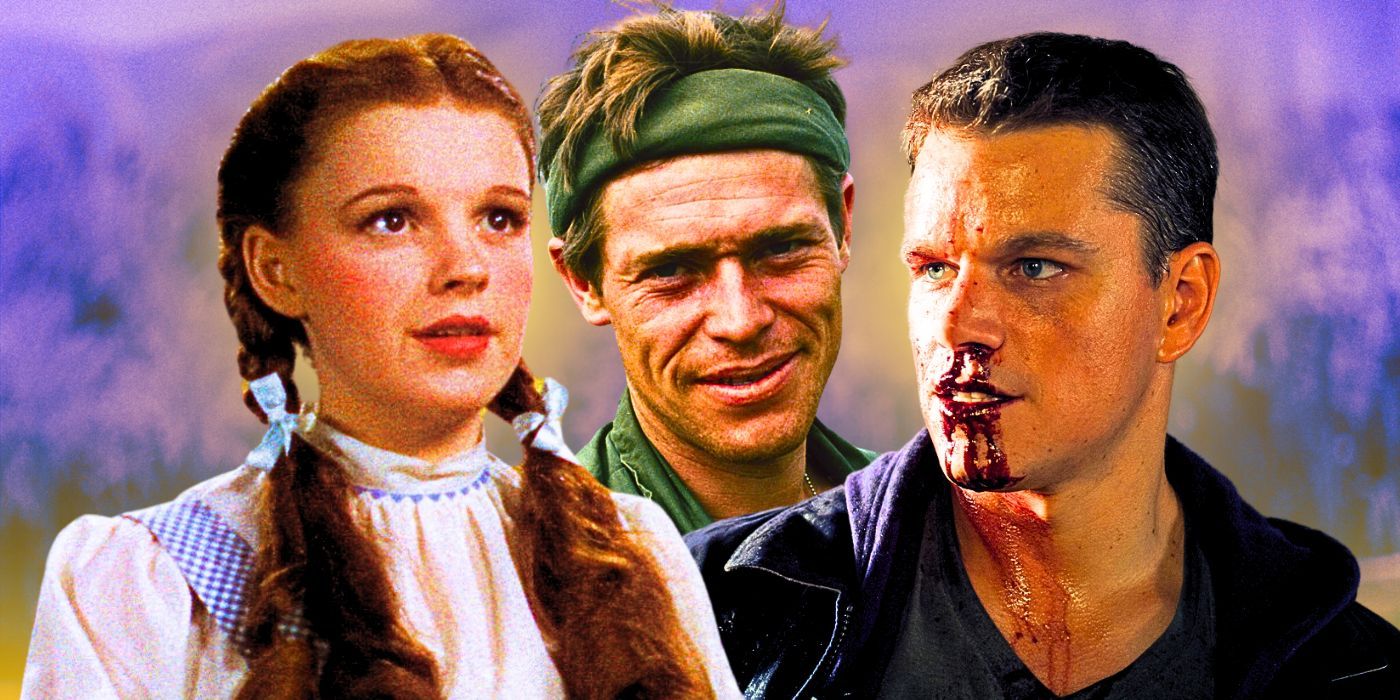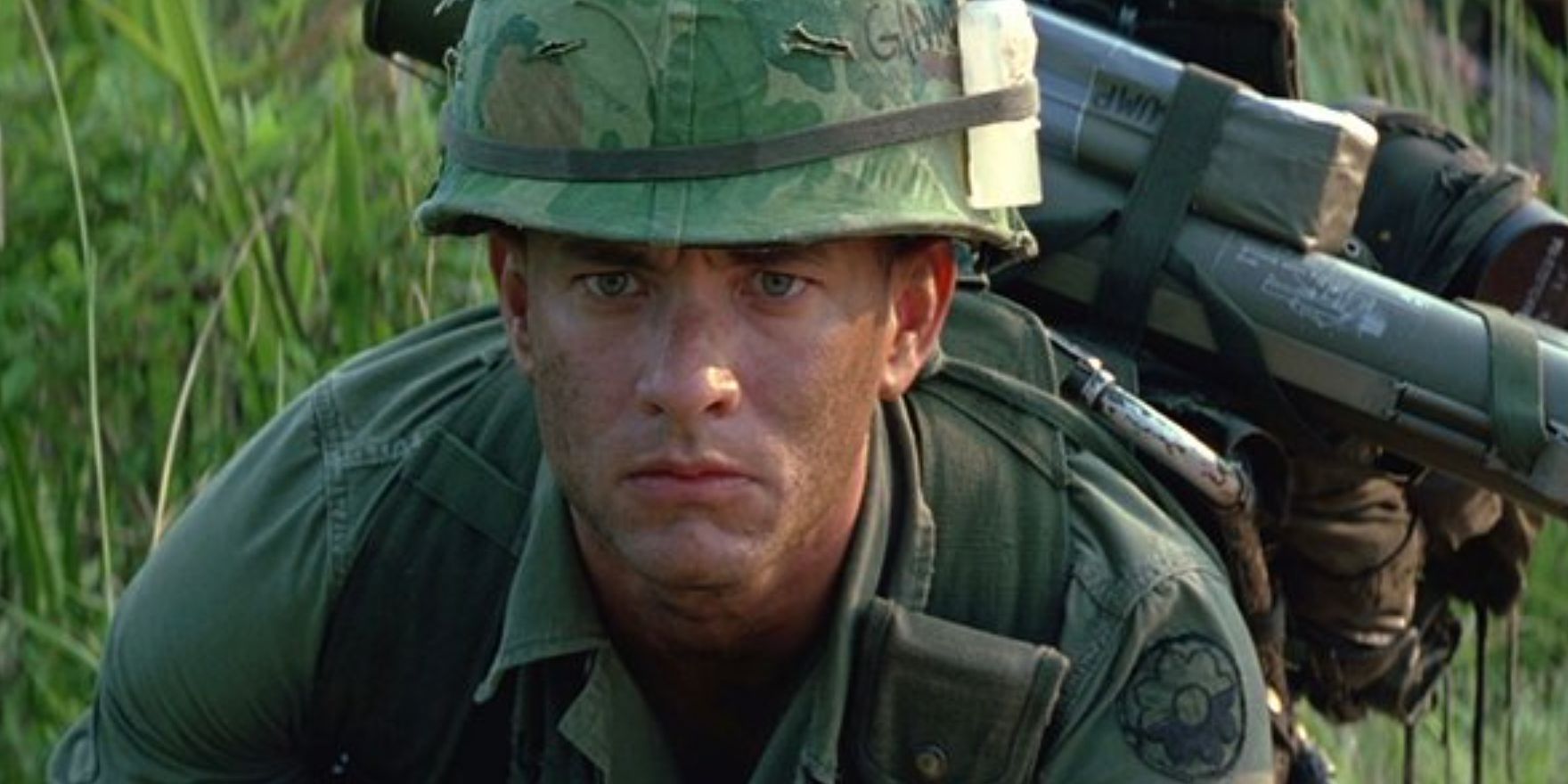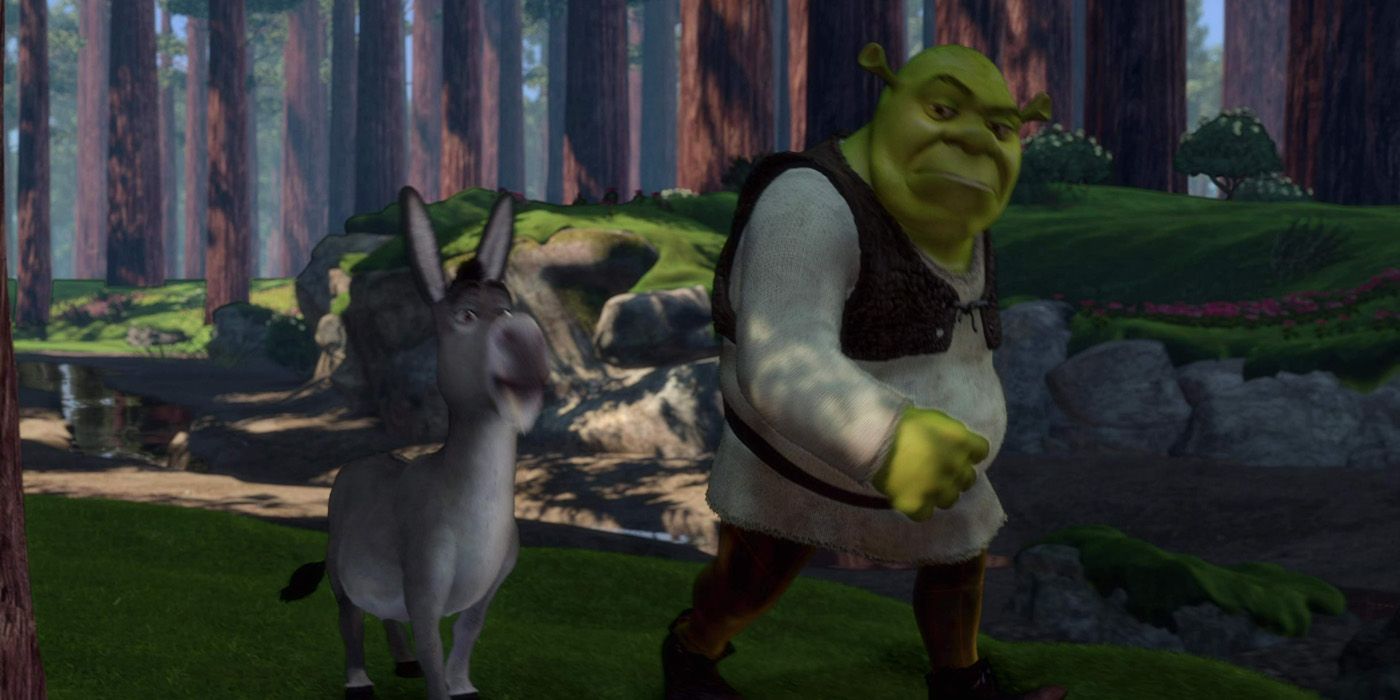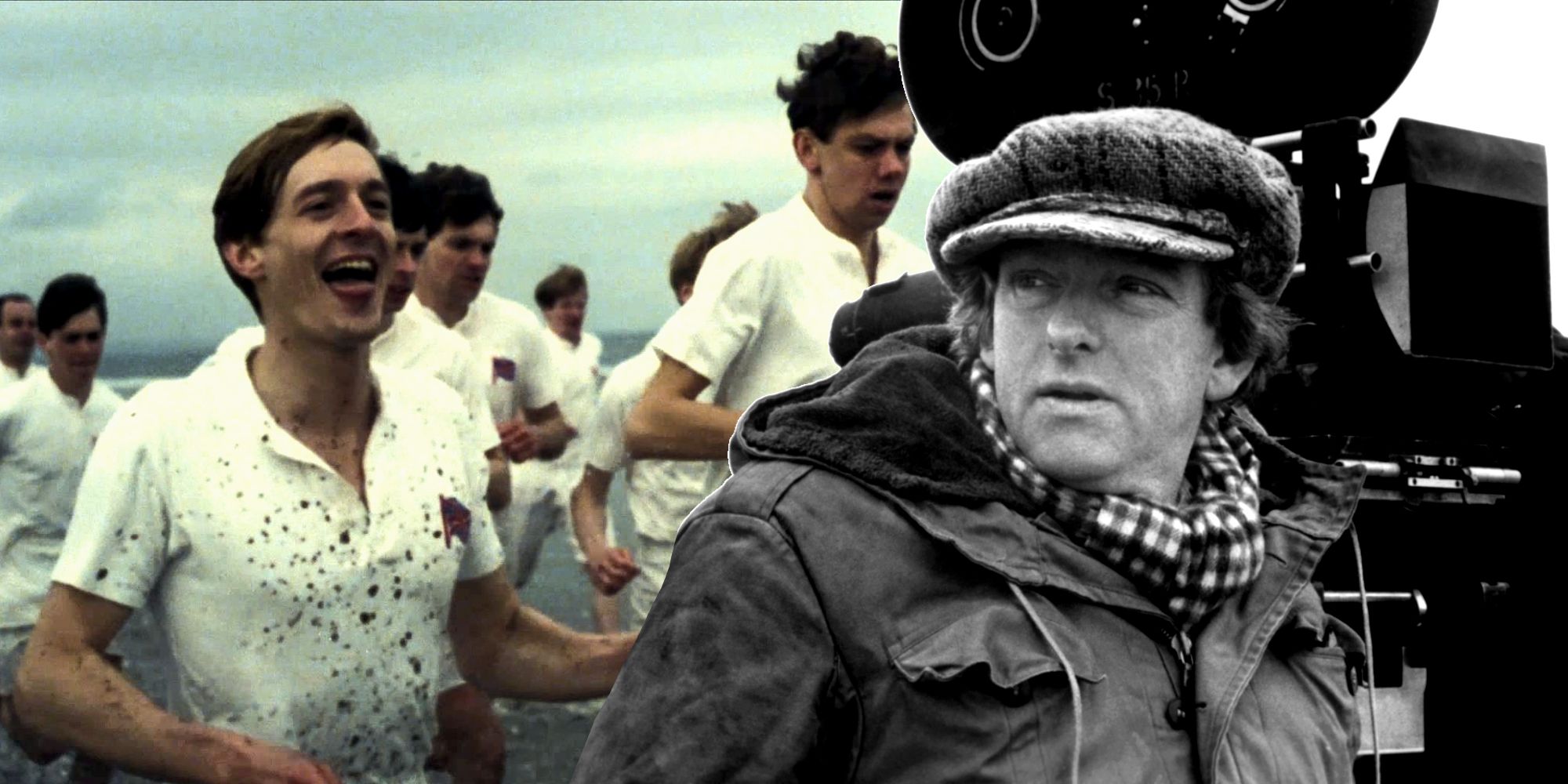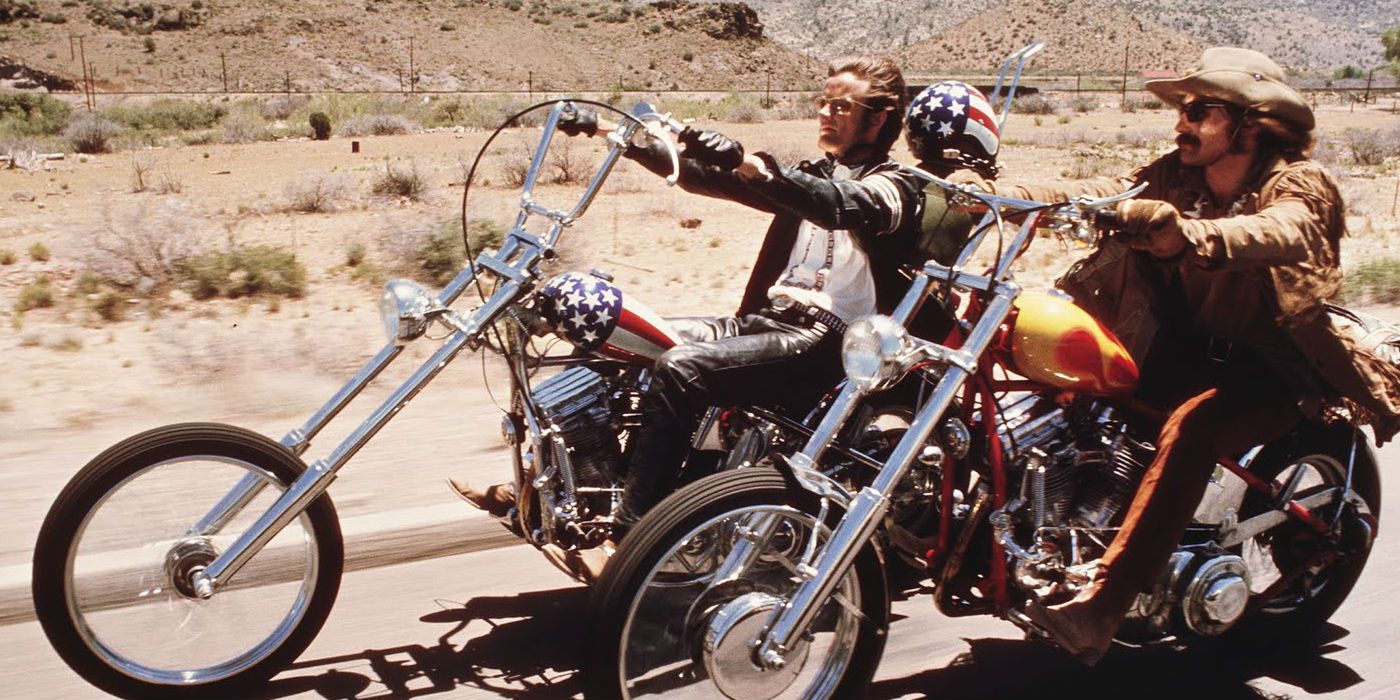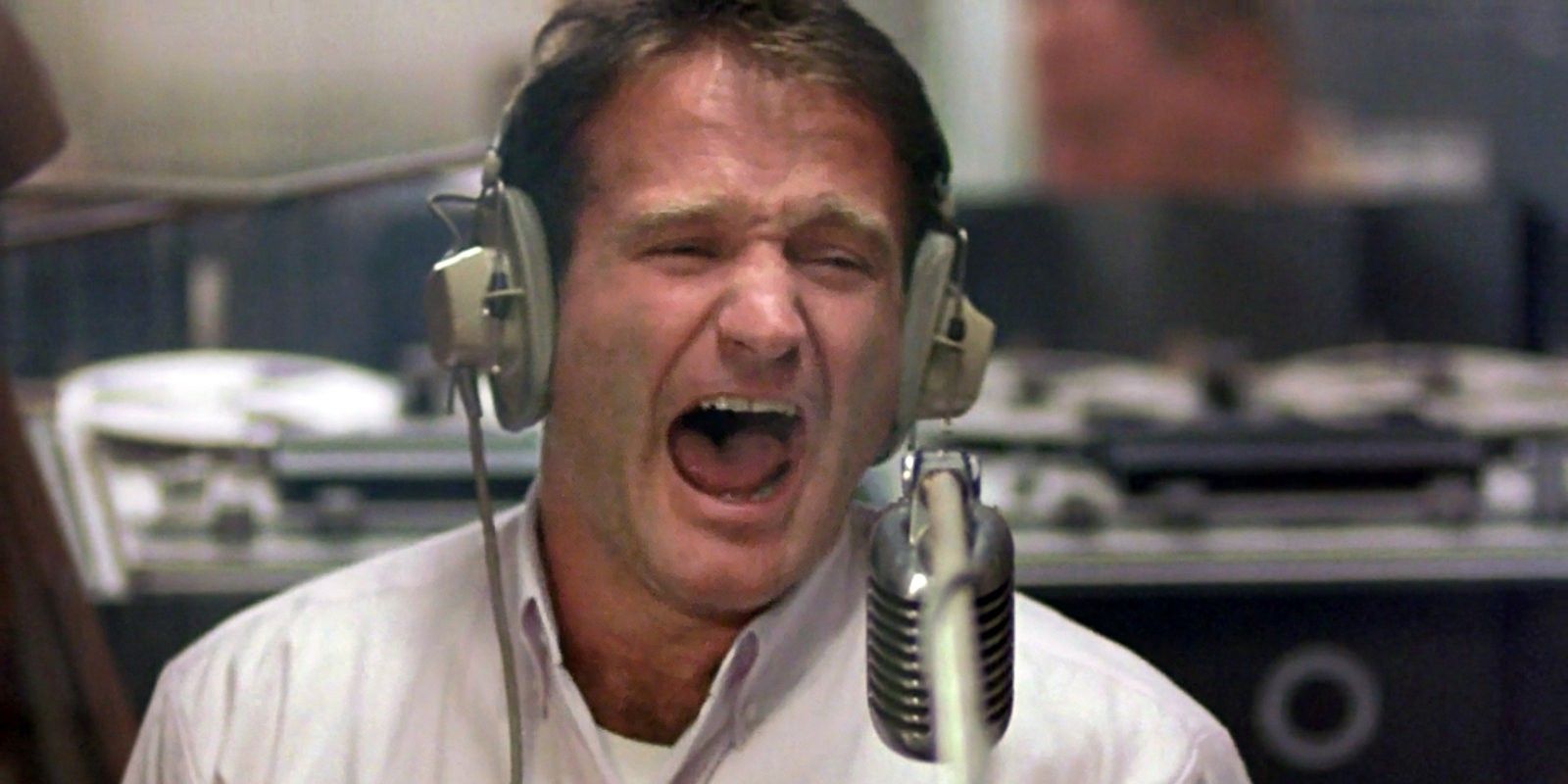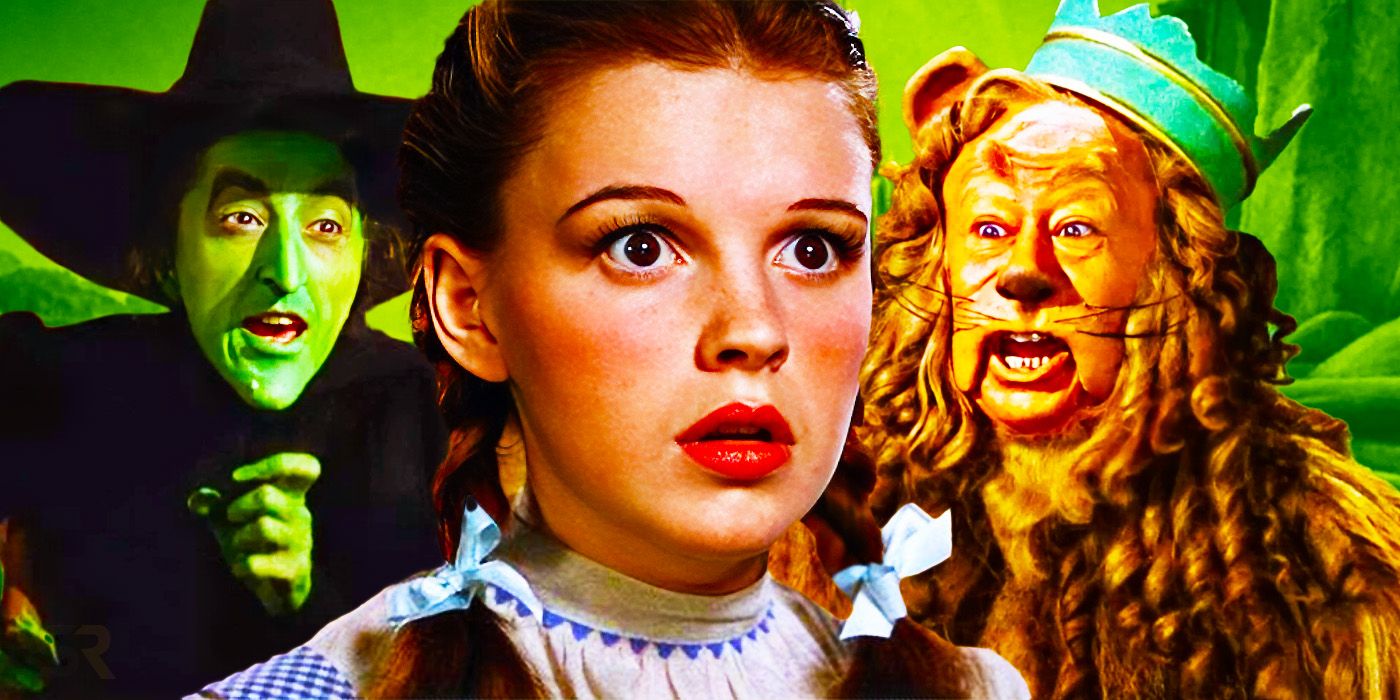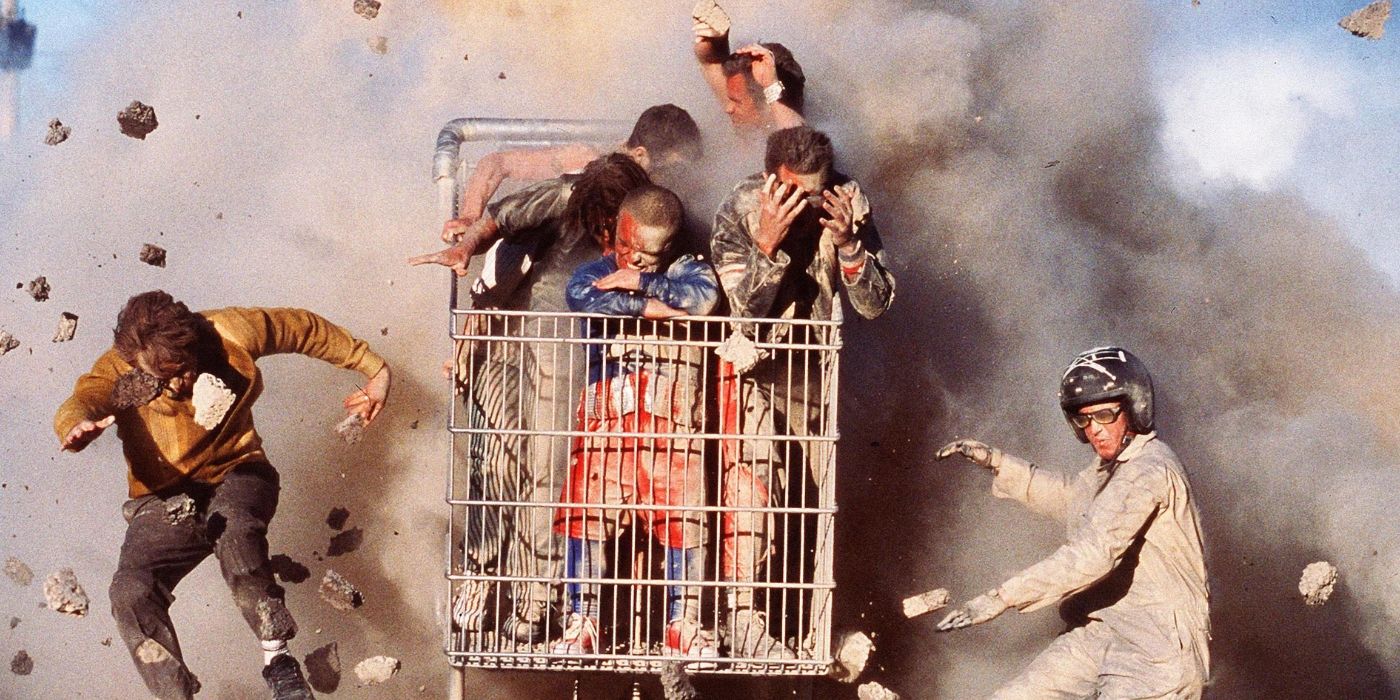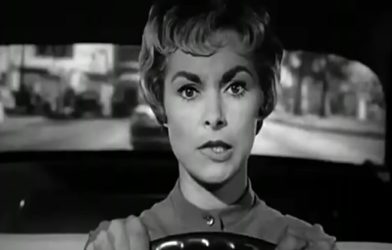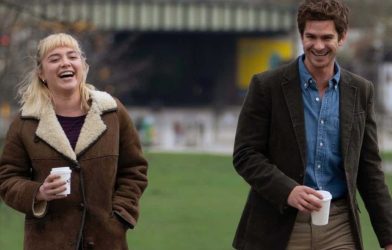Summary
- Certain songs have become overplayed in movies, causing their original meaning and impact to be lost.
- Songs like “London Calling” and “All Along The Watchtower” are frequently used to represent specific locations or characters’ rebellious spirit.
- “Hallelujah,” “White Rabbit,” and “Gimme Shelter” are examples of songs that are often used in emotionally momentous moments, but their ubiquity has diminished their power.
Certain songs capture a moment or mood so perfectly that they can define an era – yet being successful can also cause some overplayed movie songs to lose their power. Throughout cinema history, filmmakers have turned to the same songs over and over again to elicit a specific reaction from the audience. Unfortunately, failing to think outside the box has transformed previously iconic movie moments into parodies of themselves, all thanks to an unimaginative song choice.
The best movie songs can become overplayed for any number of reasons. Sometimes, it can be because a song’s use in a particular scene resonates so deeply that filmmakers will do anything to try and recapture the magic. On other occasions, it might be because a particular director has such a strong affiliation that they can’t imagine anything else accompanying their scene. Whatever the reasoning, logic leads time and time again to the same songs appearing in dozens of different movies – often in identical-looking scenes. As a result, some movie songs need to be permanently retired.
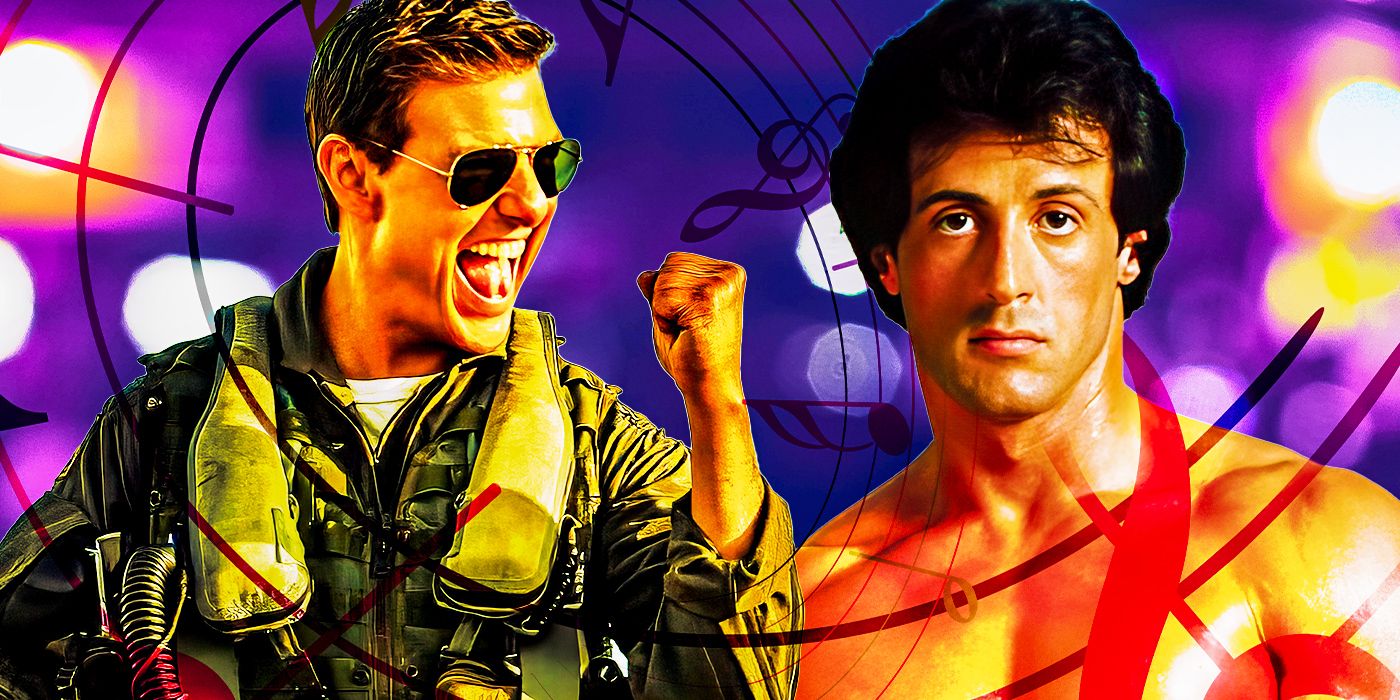
Related
10 Best Songs In 1980s Action Movies
The 80s was a great time for music, and it was common practice to use popular songs in action movies, with many hits outgrowing their films.
10 “London Calling” – The Clash
Used in Atomic Blonde, Die Another Day, The Conjuring 2, Get Him To The Greek, Intimacy
Released in 1979, The Clash’s seminal punk anthem “London Calling” is a politically charged diatribe that strikes at the heart of establishment Britain. Sadly, much of that rebellious spirit has been lost thanks to its overuse. As the song’s title implies, “London Calling” is typically used as a heavy-handed signal to the audience that the movie’s action has moved to London – a far cry from what lyricist Joe Strummer originally intended. The song’s use in multiple similar movie scenes means that it more than earns a place on this list.
9 “All Along The Watchtower” – Jimmy Hendrix
Used in Withnail and I, Forrest Gump, A Bronx Tale, Rush, Watchmen
Much as “London Calling” has become synonymous with turning up in London, “All Along The Watchtower” is a shortcut for any movie to represent a character’s cool rebellious spirit – usually accompanied by the wearing of sunglasses. Not only does it hark back to the 60s (and is frequently used by movies set in that era), but the song exemplifies a specific moment in hippie and drug culture. Admittedly, some films, like Withnail and I and Watchmen, still use the song very effectively. Nevertheless, “All Along The Watchtower” still ranks as one of the most overused movie songs ever.
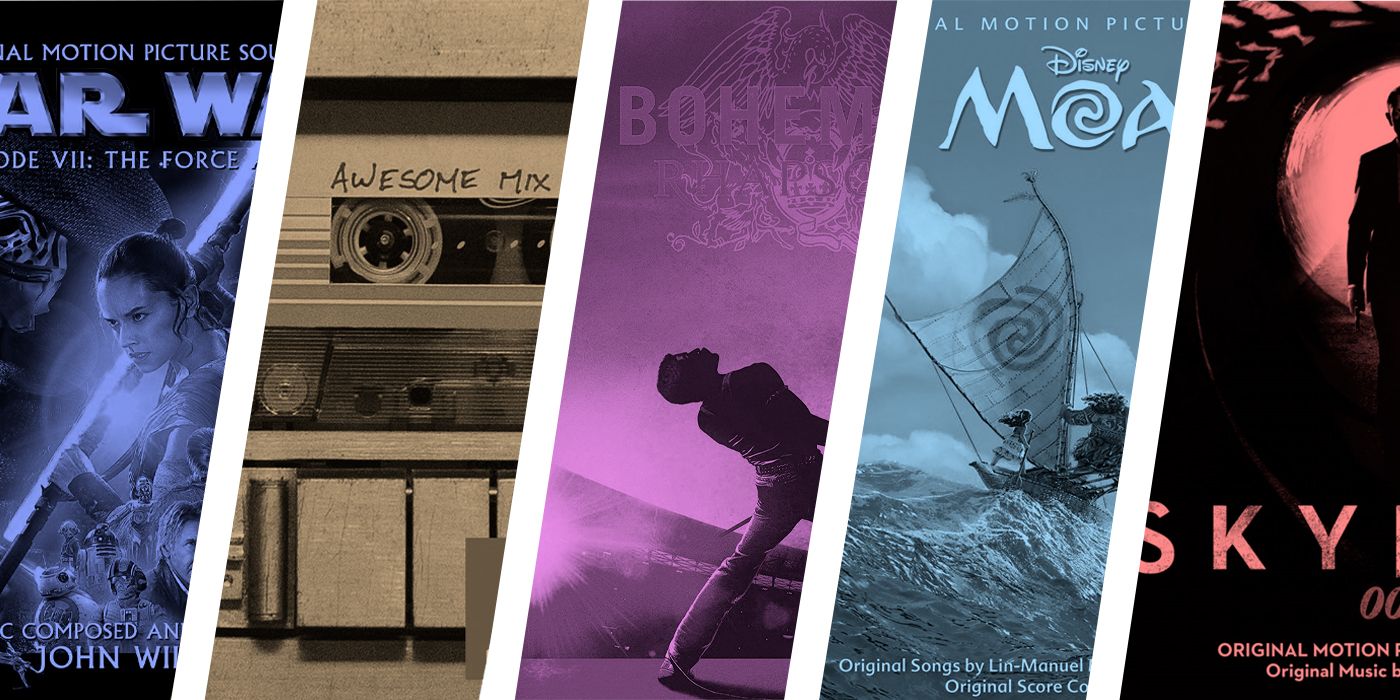
Related
Best Movie Soundtracks Of The Decade
The 2010s brought us some fantastic films with unforgettable soundtracks and scores, such as these 15 albums released from 2010 – 2019.
8 “Hallelujah” – Leonard Cohen (and Various)
Used in Watchmen, Shrek, Basquiat, Zack Snyder’s Justice League
Any song that keeps listeners coming back across the decades can be considered great art, but “Hallelujah”‘s ubiquity has damaged the power of Leonard Cohen’s original masterpiece. In both film and television, the song is invariably used to soundtrack an emotionally momentous moment – often as part of an extended montage of characters looking sad. Although Cohen’s “Hallelujah” is popular, it is really Jeff Buckley’s famous cover that is the biggest repeat offender, cropping up everywhere from animated comedies to Christian melodramas.
7 “White Rabbit” – Jefferson Airplane
Used in Platoon, Kong Skull Island, The Matrix Resurrections, Fear and Loathing in Las Vegas
No song has become as synonymous with drug use on film as Jefferson Airplane’s “White Rabbit”. The Californian sextet’s brilliantly trippy subversion of Alice in Wonderland benefits from bizarre lyrics and a haunting guitar riff – all of which make it ripe for exploitation. As demonstrated best by Platoon, the song is often employed when a character is subjected to a mind-altering substance, or something similarly distortive. The result is that “White Rabbit” is an easy – if overused – shortcut for any director.
6 “Gimme Shelter” – The Rolling Stones
Used in The Departed, Casino, Goodfellas
Unlike other entries on this list, “Gimme Shelter” is arguably only overused because of one man. Legendary director Martin Scorsese (who directed the 2008 Rolling Stones documentary Shine A Light) returns to the song time and time again as a signature theme throughout his movies. While “Gimme Shelter” also features in other hit films such as Flight and Layer Cake, its use in The Departed, Casino, and Goodfellas has cemented the song’s status as an overplayed classic.
5 “Chariots Of Fire (Titles)” – Vangelis
Used in Chariots of Fire, Bruce Almighty, Old School, The Grinch, Madagascar, Are We Done Yet?
Serious scenes scored with a particularly distinctive soundtrack are perfect targets for parody. While many such moments have been imitated over the years, none have been treated quite so disdainfully as Chariots of Fire‘s beach-running sequence. The moment, with its distinctive swelling music, has been lampooned over and over again in dozens of different comedies. Essentially, any time a character is required to run dramatically in slow motion in a scene played for laughs, there’s a high likelihood that the filmmakers will at least have considered using Vangelis’ famous backing track.
4 “Born To Be Wild” – Steppenwolf
Used in Easy Rider, Paddington, Herbie: Fully Loaded, Mr Bean’s Holiday, Borat
Made famous by its use in 1969’s Easy Rider, “Born To Be Wild” embodies freedom and the open road. Unfortunately, this mass appeal means that the song is now considered the only proper way to start a road trip on film. The Steppenwolf hit crops up anytime characters need something inspirational to kickstart a journey, or if they’re about to do something unexpectedly rebellious. Considering how common these tropes are in movies, it’s no wonder that “Born To Be Wild” has made over 40 movie and TV appearances since its release.
3 “What A Wonderful World” – Louie Armstrong
Used in Good Morning, Vietnam, Madagascar, 12 Monkeys, Bowling For Columbine
Thanks to the song’s vivid imagery and lyrics, “What A Wonderful World” is a favorite choice for directors looking to accompany a montage. Unfortunately, the song’s fame and flexibility mean that it appears in all sorts of unlikely places. While its use can be effective (such as the compilation in Good Morning, Vietnam highlighting the true horror of war), its overuse has now lessened the impact of what was once a powerful movie song. Even when used ironically, as in Michael Moore’s searing documentary Bowling For Columbine, “What A Wonderful World” is sadly little more than a pastiche.
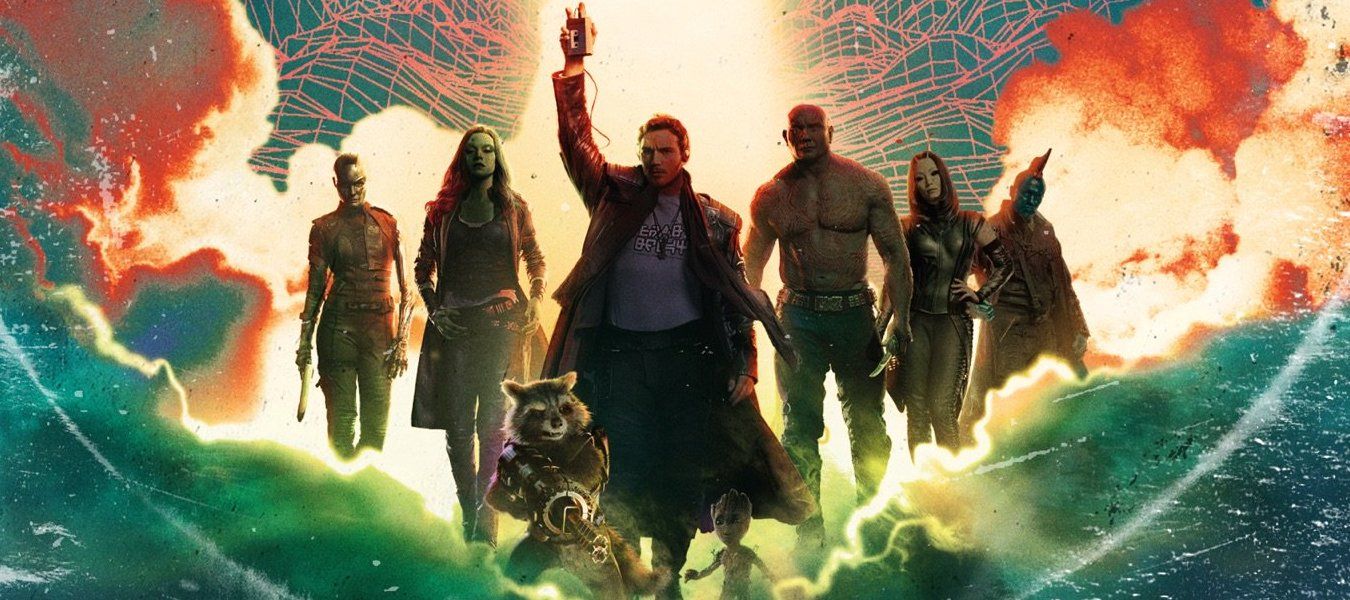
Related
The 10 Best Movie Soundtracks of All-Time, Ranked
Awesome movie soundtracks can turn a good movie like Guardians Of The Galaxy or Star Wars into iconic ones. Here’s a ranking of the ten best ever.
2 “Over The Rainbow” – Judy Garland/Israel Kamakawiwo’ole
Used in The Wizard of Oz, 50 First Dates, Meet Joe Black, Snakes On A Plane, You’ve Got Mail
Commonly used as a movie reaches its emotional zenith, “Over The Rainbow” has been recorded and recorded many times over the years. While Judy Garland’s original is regarded as a classic, covers by Israel Kamakawiwo’ole, Eva Cassidy, and even Cliff Richard have all made movie appearances. While each version brings something unique to the table, their combined appearances dating back 85 years make the song one of the most overplayed and overused in cinema history.
1 “O Fortuna” – Carl Orff
Used in Jackass: The Movie, Cheaper By The Dozen, Glory, The Hunt For Red October, Natural Born Killers, South Park: Bigger, Longer, and Uncut, Excalibur
Probably the most heavily parodied movie song ever composed, Carl Orff’s dramatic “O Fortuna” originally appeared as part of the legendary cantata Carmina Burana. It is, without question, one of the most epic-sounding arrangements of all time. Conversely, its lofty self-seriousness means it can swiftly become inadvertently hilarious. While some films have used the song as sensibly as it was originally intended, others play “O Fortuna” to make incredibly banal moments seem suddenly epic, or give low-brow comedy some unexpected gravitas. Its overuse in this regard means that, whenever it appears, “O Fortuna” makes it basically impossible to take what’s happening on screen seriously.

